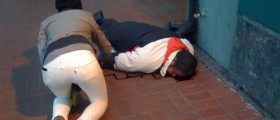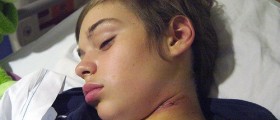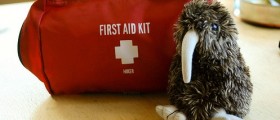
First aid during an epileptic attack can help the sufferer greatly. However, the necessary process for helping a person undergoing seizures will depend on the seizures themselves and the characteristics of epilepsy the individual is suffering from. It is crucial to stay calm and know where to seek help.
First Aid for Tonic-Clonic Seizures
When a person has a tonic-clonic seizure, he/she is likely to lose consciousness, become stiff and fall to the ground. The limbs will probably perform jerking movements and the mouth will turn blue due to irregular breathing patterns. The sufferer may urinate or defecate. Once the process is over, the person will return to normal.
During this time, prevent the person from getting injured by removing any dangerous objects laying around. Next, place a pillow under the head of the sufferer and search his/her pockets for an epilepsy identity card or jewelry.
Once the person regains consciousness, help him/her get in proper position in order to breathe normally once again. Do your best to calm the person and make him/her feel relaxed, since he/she will probably be confused.
Under no circumstances should you place anything in the person's mouth or restrain him/her. Moreover, do not even move the person unless he/she is in danger of getting injured. Do not give the individual anything to eat or drink until he/she recovers completely and, finally, do not try to help them until the seizure is over.
When to Seek Help?
Call an ambulance if you have reasons to believe that the attack the person is having is the first one in his/her life. Also, if seizures last for longer than 15 minutes and appear one after another, seek medical assistance immediately. Sometimes, the person may get injured while having seizures. Then, call an ambulance as soon as possible.
First Aid for other Epileptic Seizures
Sometimes, a person suffering from this condition may experience twitching in some parts of the body, along with numbness, sweating, nausea or dizziness and vision, smell or taste abnormalities. These attacks are called simple partial seizures. Complex partial seizures may involve plucking at clothes, smacking lips, swallowing or wandering around unaware of your actions. Finally, some other seizures may manifest through sudden loss of balance, brief jerks or daydreaming.
In these cases, help the person stay safe and relaxed, search for epilepsy identification, stay around until the seizure is over and help the person understand what happened once he/she regains consciousness.
If anything goes wrong or the person fails to return to normal, seek medical assistance immediately.

















Your thoughts on this
Loading...